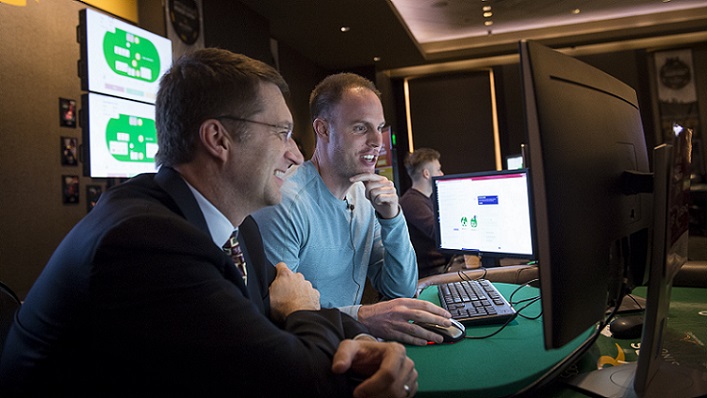Podcast: Play in new window

BOB HIRSHON (host):
Outbluffing poker’s pros. I’m Bob Hirshon and this is Science Update.
It’s been 20 years since the supercomputer Deep Blue beat world champion Garry Kasparov at chess. Since then, artificial intelligence has moved on to more complex challenges. Now, a computer program called Libratus has finally bested four of the world’s top professional poker players at Heads up No-limit Texas Hold’em in a whirlwind tournament.
TUOMAS SANDHOLM (Carnegie Mellon University):
In all of the other games that have been tackled, this is the last one standing. It has 10 to the power of 160 different situations that the player can face; that’s bigger than the number of atoms in the universe.
HIRSHON:
Carnegie Mellon’s Tuomas Sandholm says the mathematical algorithms built into Libratus take into account the bluffing and uncertainty inherent to poker, which could also make them useful in business negotiations, cyber security, and military planning. I’m Bob Hirshon, for AAAS, the science society.
Story by Susanne Bard
*Carnegie Mellon computer science graduate student Noam Brown helped develop Libratus.
